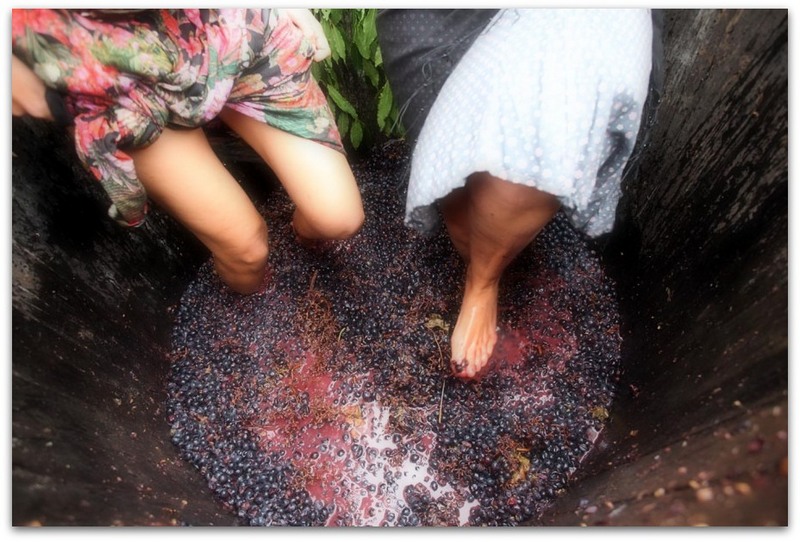I recently asked my Italian friend and student of English, Stefano, to practice his English by writing about some of his childhood memories for me.
I liked what Stefano wrote so much that I asked him to rewrite it in his mother tongue so that I could share it with you. Here are a few of Stefano’s memories with my English translation.
Da piccolo ho fatto cose interessanti che, in parte, ora non si fanno più:
When I was young I did interesting things that, for the most part, aren’t done any more:

Dopo la vendemmia, pigiavo l’uva nelle botti coi piedi coi miei cugini e mio nonno poi finiva il lavoro necessario per ottenere il vino; le botti erano grandi e la cantina bassa, non permetteva agli adulti di pigiare l’uva e non usavano macchinari più moderni.
After the grape harvest, I pressed the grapes with my feet in the barrels together with my cousins, then my granddad finished the work that was needed to produce the wine; the barrels were large and the cellar low, this didn’t allow for adults to tread the grapes, and they didn’t use more modern machinery.
Quando diventai un po’ più grande volevo aiutare a tutti i costi mio nonno a togliere le vinacce fino in fondo alla botte, anche se lui riteneva fosse il suo lavoro. Le vinacce venivano poi strizzate per fare un vino di secondo livello, ma nulla era sprecato!
Poi un giorno volli fare io quel lavoro ed capii perché fosse pericoloso per me: mi ubriacai con i vapori dell’alcol senza aver bevuto!
When I got a bit older, I desperately wanted to help my granddad to get the vinacce (the dregs that are left in the barrels once the wine has been drained off) from the bottom of the barrels, even though he considered it his job. The vinacce were then squeezed to make a second grade wine, nothing was wasted!
Then one day I wanted to do the job by myself, and I understood why it was dangerous for me: I got drunk on the vapour of the alcohol without even drinking!
Trascorrevo tanto tempo con mio nonno, specie d’estate; lui fece il militare prima della seconda guerra mondiale; conservava ancora tanti oggetti di quel periodo, per esempio, la gavetta con cui mangiava il rancio, che poi a casa usava solo per portare il mais alle galline.
I spent a lot of time with my granddad, especially during the summer; he was in the army before the second world war; he still kept lots of objects from that period, such as the mess tin out of which he ate his rations, which at home, however, he just used for giving maize to the chickens.






Comments:
paolo:
Ciao Geoff e Serena,
Potrebbe essere possibile a fare un blog di dove si mette l’aggettivo con un sostantivo e quando ci sono due o più aggettivi con un nome? Ci sono dei regoli?
Grazie in anticipo.
paolo
Serena:
@paolo Salve Paolo, salve Joan!
Eccovi alcuni link sugli aggettivi:
https://blogs.transparent.com/italian/adjectives-and-their-position/
https://blogs.transparent.com/italian/mind-where-you-put-your-adjectives/
https://blogs.transparent.com/italian/a-big-brush-or-a-great-brush/
https://blogs.transparent.com/italian/adjective-order-in-italian/
Spero che siate soddisfatti!
Saluti da Serena
paolo minotto:
@Serena Grazie tanto.
Joan Engelhaupt:
Anche io vorrei un blog sulla tema di dove si mette l’aggettivo con un sostantivo.
Rita Kostopoulos:
Belle memorie per me. Tempi felici e pacifici erano questi